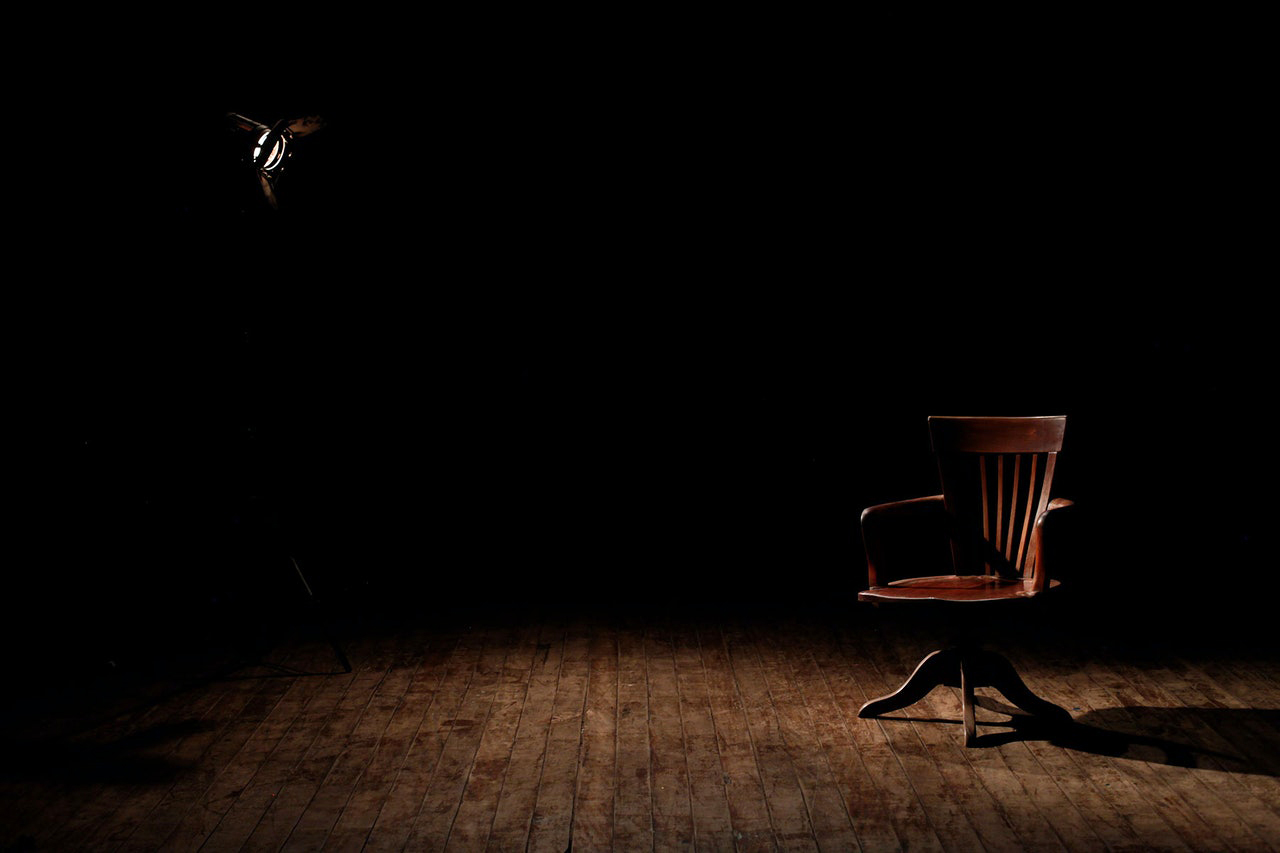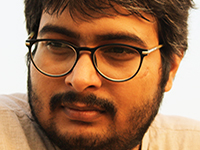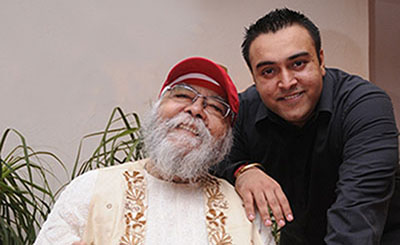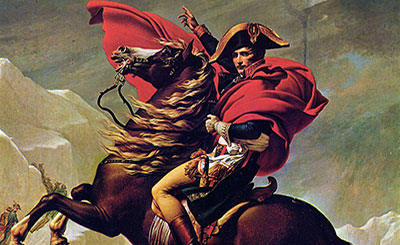
I saw them from the corner of the door. They were sitting barefooted, hunched up on the ground in a corner. I saw their bare feet. Don’t they feel cold? I was there in my shoes and my feet were still freezing. How dishevelled they looked with mud and dust settled on them! Their pale eyes were sunk deep under their forehead. Flies were buzzing around them and over the samosa they’d been given to eat. There was darkness around them, and both the old man and old woman were wrapped in a ragged shawl. Just a ragged shawl. Not in a jacket or a sweater. I was in my jacket as it was frigid December cold. People who were at the police station with me kept staring at them from the corner of their eyes out of curiosity. They wanted to know if a thief’s parents are like all the other parents or do they look like aliens. Do they wear this shame on their faces or are they disgracefully flagrant? They certainly were not like all the other parents; they were poorer and seemed to be more depressed. They looked miserable. The darkness around them was a little more dark. The night around them was a little more cold. Had their son been not doing anything they would have had a better life. But he stole, committed crimes, and claimed that he did it all for them, to rescue them from their poverty and the shame it brought in.
Occasionally, a sudden anger would shoot up in the Policeman, and he would go near and start firing questions at them. They were not just queries, they were bullets, and their tremor was felt by everyone around.
“Bastards, don’t you know where your son is? It is cause of this filth that flows in your blood.” He would spit the remaining liquid of paan right in the corner they were sitting and some of it would drop over them. The old woman would wipe it with the corner of her shawl, without being affected much. This coldness towards such humiliation was not a day’s result.
They looked tired of talking now; they had already told the policeman several times that they didn’t know anything about their son’s whereabouts. They told him that they had no connections with him anymore. He used to come before but it’d been months since they saw him last. She told the policeman that he is a curse for them, and it would have been better if she had never brought him to this world. “It’s better to remain barren than to have a son like him,” she had already said it with watery eyes.
“I know you people very well, you worms of gutter. From where did your husband get so much money to do the fencing?” the policeman asked, burning with rage.
“Sahib, such a small house we have, and in the name of field, we have a few squares of ground. We can hardly grow vegetables there to fill our vile stomachs. My husband had lent some money from the bank. Stray animals used to eat all the vegetables we grew. We would die starving if we don’t make a fence,” she pleaded, joining her hands.
When the police had arrived at their home, he was working in his field and she was muttering her prayers in the room. Hardly had he laid the second brick of the fence than the policemen arrived and started swearing at them. The old man wasn’t much surprised; they had become used to it now. They were used to the barrage of abuses by everyone. And not a month would pass when they would be dragged to the police station. Their son was an infamous thief.
‘Bastards, where is your son? We’ll kill you both this time. Get in the Jeep,” the angry policeman roared the time he arrived at their dingy house. The old man dropped the spade on the ground. His wife came out running, knowing already what had happened. They didn’t have enough time even to get into their slippers.
But it was in the morning and now it was night. The whole day had already passed. I had come back to the police station after eating my supper and they had been given samosa for dinner. The plate of samosa was resting just near the corner where the fat policeman spat beetlejuice intermittently. A few flies were fluttering over the plate and hovering over their bodies. But they didn’t care to swat them away. They were quite receptive to their fates.
“Sir, will you keep them here all night? They might catch cold,” I said to the inspector.
The inspector glared back at me. “Let us do what we think is right,” he said, coldly.
It was my bike his son had stolen. I had come to my sister’s place early in the morning. We had a plan to go out for the picnic but when I came out to leave, I found out that my bike was missing. I looked frantically and ran everywhere around but couldn’t find it. Soon, the news spread in the colony, and the neighbours came.
They were more concerned for themselves as it could happen to them also. One man told me that it must be Juggu who stole my bike. He told me that his parents lived just across the bridge. A few people who accompanied the man assured me of his name. They told me that Juggu is the only thief here. He used to do that out of this village before but now he had started doing this here. A sweeper of the colony informed us that she had seen Juggu on a black bike in the morning. I was assured now.
I went straight to the police station and asked them to lodge a complaint. The police knew his name already, and I didn’t have to assure them more that it was Juggu only. They trusted me as if they had seen him stealing my bike with their own eyes. And it was then that they dragged his parents straight to the police station but their son was already on a run. The police believed that he would return for his parents. However, his parents were quite sure that he wouldn’t.
Juggu was a notorious child from a very early age. He was their only son and so they pampered him a lot. However, as he reached his adolescent age, he became the ringleader of the village boys. He would quarrel with his mother for money and squander it all on his friends just to show them his superiority. In the beginning, his mother gave him some money, out of pity, from whatever little she saved for housekeeping, but after not long, she gathered that she was spoiling his own child by being generous. However, one day when she rigidly refused to give him any money at all, and tried to make him understand their poor circumstances, he became furious. He shoved his mother to the ground and refused to eat at home. After this incident, he started stealing money that people offered in temples. When his parents came to know about this they were terribly disappointed. Villagers consoled them in the front, and assured them that it was not their fault but behind their back they all called them ‘scoundrel’s parents’ and their house ‘devil’s house’. Little kids would run to his house and pelt stones at them. What shame and disappointment their only son had brought to them. Their hopes were ruined. And their future seemed to be submerged in the immense darkness. Soon, they were isolated from the entire neighborhood.
“I would like to see the place where the bike was stolen,” said the fat inspector after he came out of his short nap.
We came to my house in his Jeep. He looked all around the place as if my bike might have been hidden somewhere near. I offered him a cup of tea out of politeness and we headed to the guest room.
“You have lots of books. What do you do?” he asked me, browsing my shelf.
I found him quite obviously very ill-mannered. I felt that he should have rather asked me before going through my books. He looked all around my place. I felt embarrassed of his presence.
“I’m a writer and editor for a literary magazine,” I said, looking away.
His eyes shone as I was the only person he was looking for.
“This is great. I write poetry in my free time. Would you like to hear some? I think you can publish it in your magazine,” he said excitedly.
“Sure, why not?”
It is not that I agreed. I only wanted to end the topic as soon as possible. But he was stuck on it. He didn’t talk anything further except poetry and prose. He was very determined to read his poetry to me. I gathered that he wasn’t in a mood to give up soon.
“Let’s go to the police station and you may read your poems there,” I said with an indifferent air.
But he looked very enthusiastic.
When we reached the police station, we sat in front of fire that his officials had made just outside the station.
He read his poems for hours there, but his poems lacked sensitivity, like his nature and work. Perhaps, his work had distanced him from the real poetry and his verses lacked palpitations. Romance was missing. His soul was not a poet’s soul. Words alone can’t make poetry. There’s a lot more to it than the mere jugglery of words.
He was still reading his poetry when the thief’s parents came out of the station, and strode over to the place we were sitting.
“Sir, it is very cold inside, can we sit here near the fire,” the old lady said falteringly. They were shivering. Her eyes were red and it seemed that she had cried. My heart pained to see that. It wasn’t their mistake. It was their fate that showed them such nights.
“You bastards! You gutter of worms! You’ll sit here with us? Go to the same corner or I’ll thrash you with a rod,” the policeman shouted in anger.
I couldn’t bear that anymore. I would have cried if I had stayed there a little longer. I rose from my chair as they went inside. I felt choked.
“I would like to go now, it’s late. Your poems are good. May be I can publish those. But, in return, I want you to release his parents. Can you please?” I asked the inspector.
He was looking at me with an open mouth. He smiled at me in a condescending way.
“You’re too emotional, but if you insist, I’ll release them.” He said and went inside.
I didn’t go. I waited for them to come out. I didn’t trust the inspector.
After a few minutes, I heard him shouting again.
“My man is going with you. Do as you promised or else rot here.”
I knew what it was. I knew it was not my request, but bribery that released them. Poetry after all is only verbal pleasure for the real world.
And then I saw them coming out, shivering in the cold, dark wintry night. The old lady was sobbing. She looked at me apologetically and moved forward. I walked behind them.
When I was just round the corner of the road, I heard the inspector laughing. It was a monstrous laugh, not a poet’s. He was talking to his official, “Wasted my whole day. These bloody thieves can never change. It’s not blood, it is filth that runs in their body.”
More from The Byword
Comments
*Comments will be moderated











